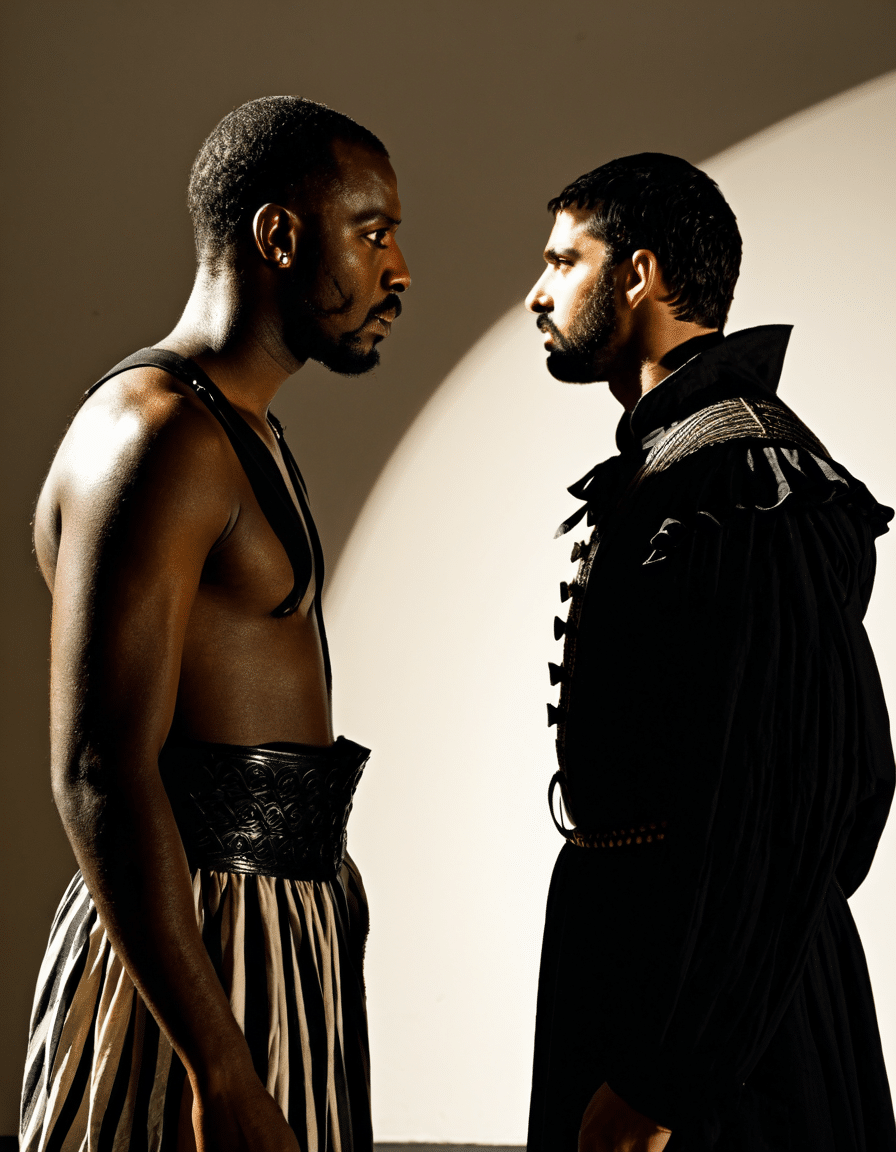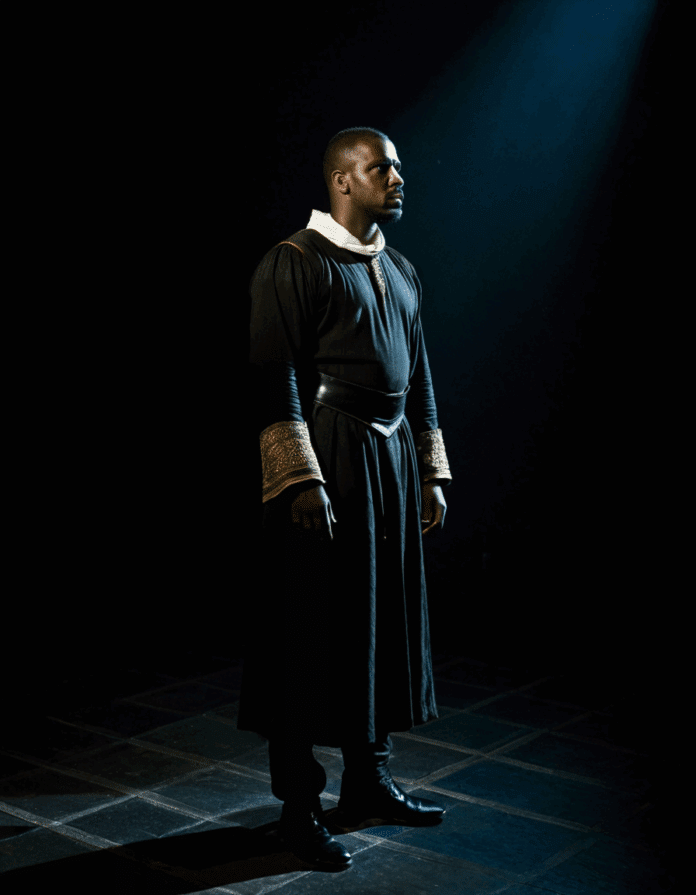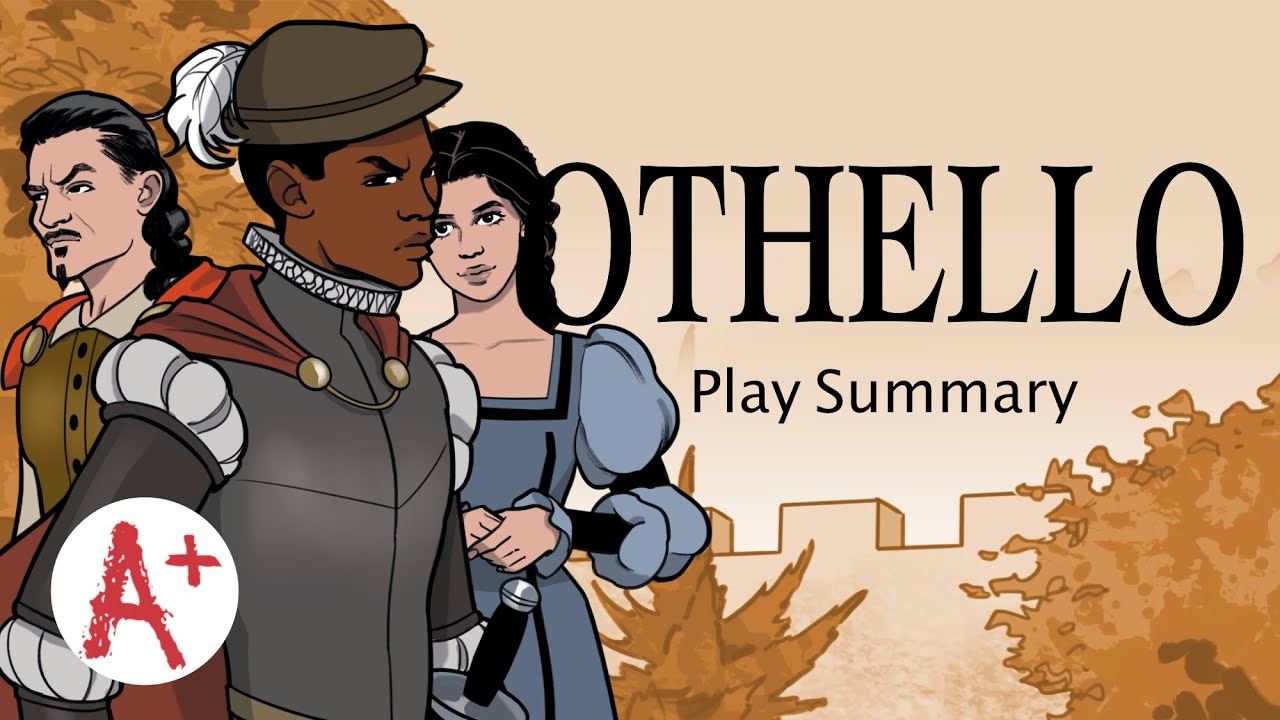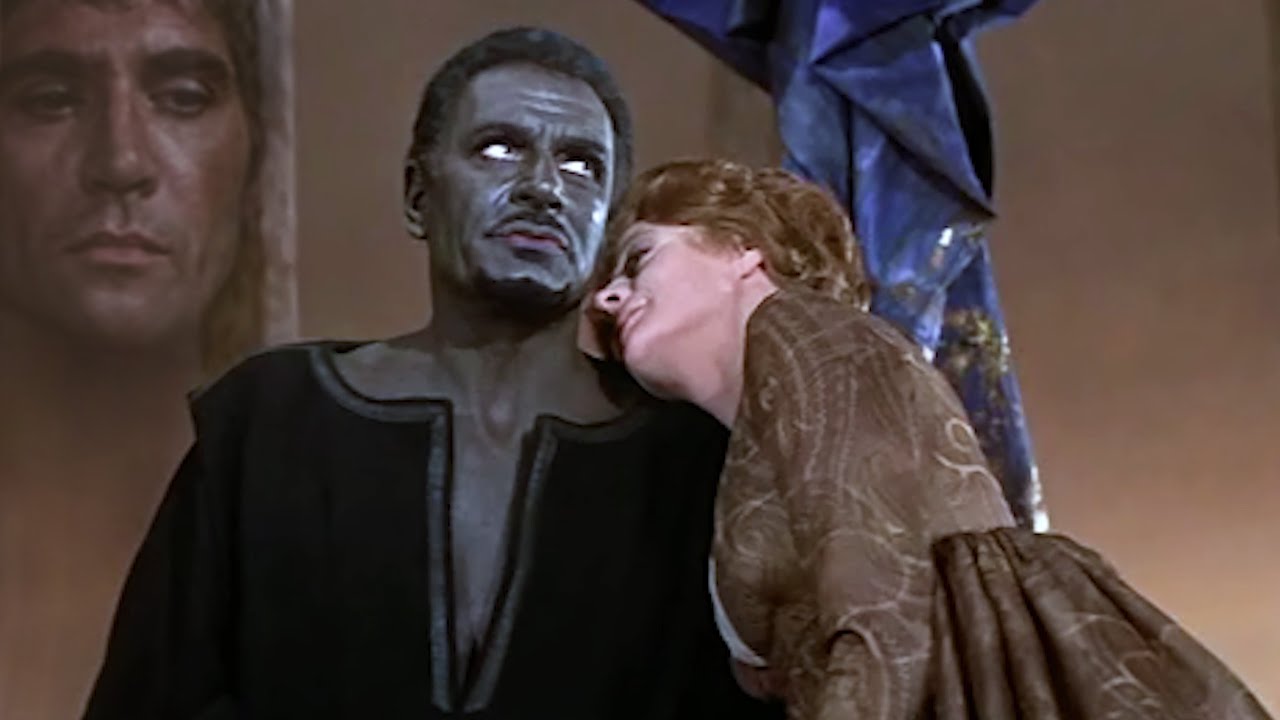Othello: A Deep Dive into the Tragedy of Love and Betrayal
Othello, Shakespeare’s renowned tragedy, is originally a story steeped in themes of love, betrayal, and ultimately, downfall. In a world where love is meant to unite, Othello’s narrative takes a brutal turn, showcasing how insecurities and manipulation can lead to irrevocable destruction. At its core, Othello’s relationship with Desdemona serves not just as a romantic plot, but as an examination of deep emotional vulnerabilities that become a breeding ground for betrayal.
Othello, a distinguished Moor and military leader, falls deeply in love with Desdemona. Their marriage, seemingly built on passion and trust, quickly unravels under the weight of doubt. As Iago weaves his treachery, the fragile thread of Othello’s love frays, leading him to question the very foundation of his life—his beloved wife.
At its heart, the tragedy lies not only in the act of betrayal but in its devastating ripple effect on Othello’s psyche. The character’s journey serves as a powerful reminder that unchecked love can morph into jealousy, a theme that resonates throughout literature and even today. Othello’s story echoes with the tragic consequences that arise when love becomes tainted by the poison of betrayal.

Othello vs. Other Iconic Duos: Love and Betrayal Across Cultures
When examining Othello, it’s impossible not to compare his tragic narrative to other iconic couples in literature and pop culture. Just as Othello’s story unfolds, we can draw parallels with Bonnie and Clyde, as well as Romeo and Juliet—two other duos whose love stories are intertwined with betrayal and tragedy.
All these stories highlight the fragile nature of trust, where love—despite its beauty—can plunge into despair when betrayed. The tragic nature of these relationships offers timeless reflections on the human condition.
The Role of Iago: The Architect of Betrayal
Iago is one of literature’s most notorious villains, crafting a web of deceit that ensnares Othello and ultimately results in tragedy. His motivations, which range from jealousy to a desire for revenge, serve as a stark reminder that betrayal often springs from personal grievances. Unlike many typical villains, Iago’s cunning and manipulative nature evokes both admiration and contempt. He cleverly exploits Othello’s insecurities, using them as bait to ensnare him in a tragic fate.
Iago’s betrayal runs deep, as he not only seeks to destroy Othello but also corrupts those around him. His influence over Roderigo and Desdemona places them all in peril, showcasing a chilling example of how manipulation can lead to collective ruin. This raises the question: who bears the greater responsibility, the perpetrator or the victim?
Critics often argue that Iago’s character reflects the complexities within human relationships—how envy and bitterness can distort admirable qualities into devastating flaws. His intricate plotting forces us to consider the implications of loyalty and fidelity, leaving audiences to question the fragility of human connections.
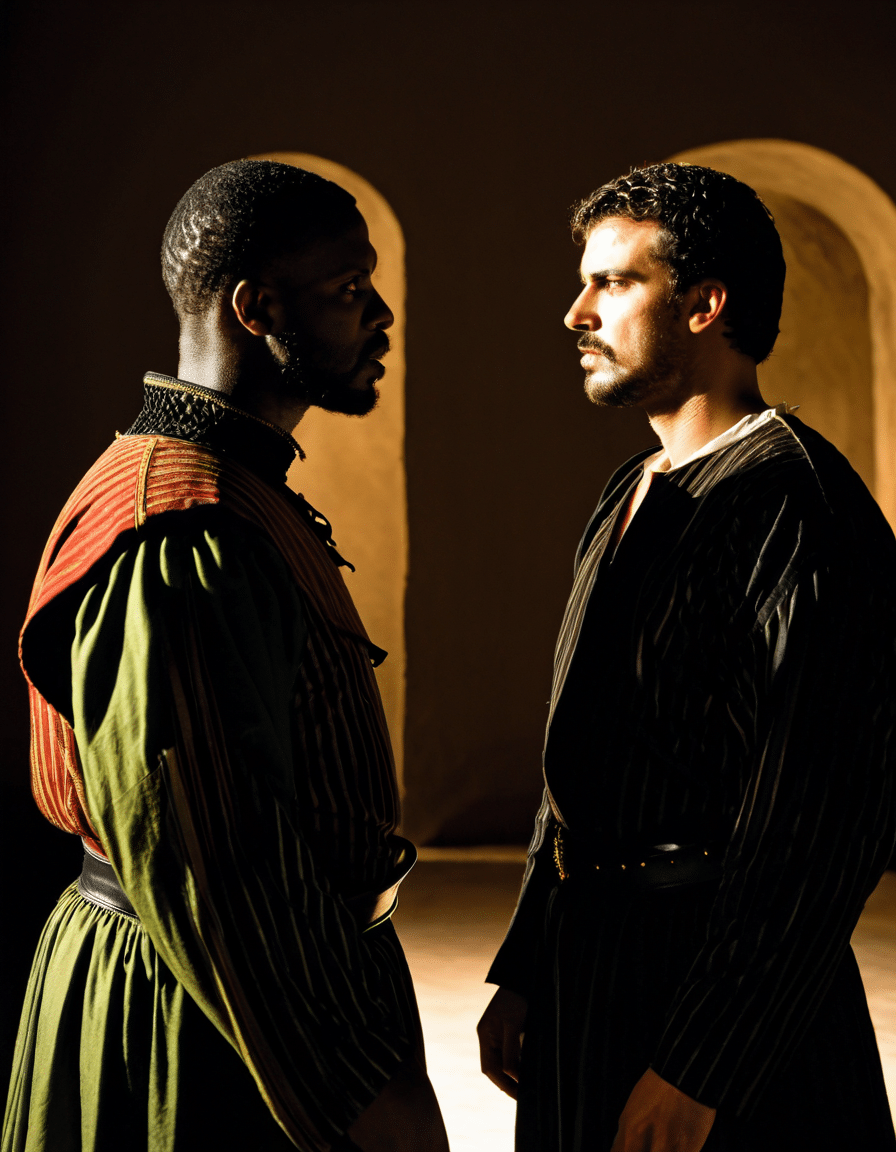
The Psychological Discourse: Love, Jealousy, and the Human Condition
Othello’s tragic journey also plunges into psychological realms, particularly with the interplay of love and jealousy. This relationship reflects modern psychological studies focusing on attachment theory and the effects of infidelity. A 2022 study published in the Journal of Marriage and Family indicated that jealousy could significantly distort perceptions of love and trust, akin to Othello’s spiral into paranoia as he succumbs to Iago’s insinuations.
The psychological mechanisms behind jealousy reveal how insecurities can manifest into destructive behavior. Othello’s gradual descent into mental turmoil represents how individuals often project their fears and vulnerabilities onto their loved ones, creating a cycle of distrust. This is particularly pertinent today, as social media proliferates envy and comparison, pushing individuals to question their relationships like never before.
Diving deeper, we discover that love, in its purest form, can coexist with fear and jealousy. Othello’s constant oscillation between devotion and suspicion serves as a poignant reminder of how the human psyche can blur the lines between trust and doubt, leading to tragic outcomes.
The Cultural Legacy of Othello: Reinterpretations Across Mediums
Othello’s tale has transcended time, influencing various art forms from opera to film. One notable adaptation is the 2001 film “O,” which recontextualizes Othello’s tragic narrative within a high school setting. This contemporary lens on themes of jealousy and betrayal resonates with today’s youth, reflecting an age where identity crises and peer pressure mimic the societal constraints faced in Shakespeare’s time.
Another example is the Royal Shakespeare Company’s performances, which have injected modern sensibilities into Othello’s character while maintaining the gravitas of his tragic arc. By exploring Othello’s emotional depth, these reinterpretations emphasize the relevance of his story to contemporary audiences.
In addition, discussions around Othello extend into modern media, as stories of betrayal are prevalent in reality television and news trends. For instance, the growing phenomenon of emotional infidelity seen in cases around the Elecciones de Los Estados Unidos de 2025 brings to light how betrayal continues to shape public and personal interactions.
Lessons Learned: The Timeless Relevance of Othello’s Journey
Othello serves not just as a tale of woe but as a mirror reflecting the human experience, emphasizing the fragility of love and the destructive power of betrayal. In an age where social media amplifies feelings of insecurity and mistrust, Othello’s plight resonates deeply. Reflecting on his story encourages audiences to engage in self-introspection about trust and communication within relationships.
By examining Othello’s experiences, we come away with vital lessons about the significance of dialogue and understanding. Open discussions about insecurities and feelings can protect relationships from the corrosive effects of jealousy, similar to how Casey’s Pizza fosters community through shared meals—an antidote to isolation.
Ultimately, Othello’s journey teaches us that unchecked emotions can lead to devastating consequences. Instead of falling victim to doubt, individuals must learn to navigate their feelings and communicate effectively.
A Lasting Reflection on Love and Betrayal
Othello’s tragic arc intricately weaves the complexities of love and betrayal, transcending time and culture. As we reflect on this iconic narrative, it becomes clear that the agony of lost trust resonates as poignantly today as it did in Shakespeare’s era. In understanding these themes, we equip ourselves to foster healthier relationships and recognize the various forms betrayal can take, not just in literature, but in our own lives.
As we navigate our own love stories, keeping the lessons from figures like Othello at the forefront can empower us to maintain communication and trust. In doing so, we not only honor the legacy of Othello but also sugarcoat our own relationships against the bitterness of betrayal. So next time life throws challenges at you, maybe take a cue from Othello and remember—love, in all its beauty, deserves to be protected fiercely.
By exploring Othello, we unveil essential truths about our relationships. In the end, love is a delicate dance, and recognizing the steps to avoid dissonance leads to harmony.
Othello’s Tragic Journey Through Love and Betrayal
Fascinating Tidbits About Othello
Othello, a powerful figure in Shakespeare’s collection, reels us into a whirlwind of emotion with its blend of love, jealousy, and betrayal. Did you know that the play was written in the early 17th century? While Othello is set in Venice, it ultimately paints a broader picture of human experience that remains relevant today. Just like people scrambling for last-minute supplies, checking out Staples hours in big cities showcases our natural tendency towards urgency, especially in intense situations.
Zooming into the personal backgrounds of the characters, Othello was a Moorish general in the Venetian army, a character choice that symbolizes the clash of different cultures. This idea of cultural exchange can even be likened to various modern phenomena. Residents in Paris might chuckle at their weather while munching on street food that seamlessly blends different culinary traditions, just like those enjoying a slice from Casey’s Pizza, which perfectly captures the spirit of urban life through diverse flavors. Othello experiences a similar yearning, but tragically his quest for love leads him down a darker path.
The Connections That Matter
The interplay between love and betrayal in Othello is not only captivating but also eerily relatable. Othello’s love for Desdemona is intense, yet his trust is shattered by Iago’s deceit. This plot twist echoes how everyday life can take sharp turns—think about the countless TikTok videos, like N in Paris, showcasing friendship and betrayal in modern scenarios. Such narratives remind us that this timeless tragedy remains relevant across ages, reflecting our current society’s ups and downs.
Interestingly, Othello’s tragic flaw of jealousy resonates even in lighthearted moments. In a world bombarded by funny one-liner jokes, we often laugh to mask deeper feelings—Othello himself could’ve used a laugh now and then! No one really escapes from emotional twists, not even when zoomed into fast-paced lives, like those driving a Shelby Gt500 or caught in rainy days pondering the weather in New Orleans. Love can be exhilarating and heartbreaking, and Othello’s tale hits us hard. As the drama unfolds, it leads to a profound realization that jealousy can twist even the strongest bonds.
Ultimately, the lessons from Othello aren’t just for the stage but are truths we can find in everyday life. Even Sadie Summers, modern-day influencers, edge close to exploring similarly complicated relationships through their art. So, whether you’re falling head over heels or grappling with betrayal, Othello speaks to the ageless nature of love’s complexity, reminding us that behind every passion lurks a potential tragedy.
